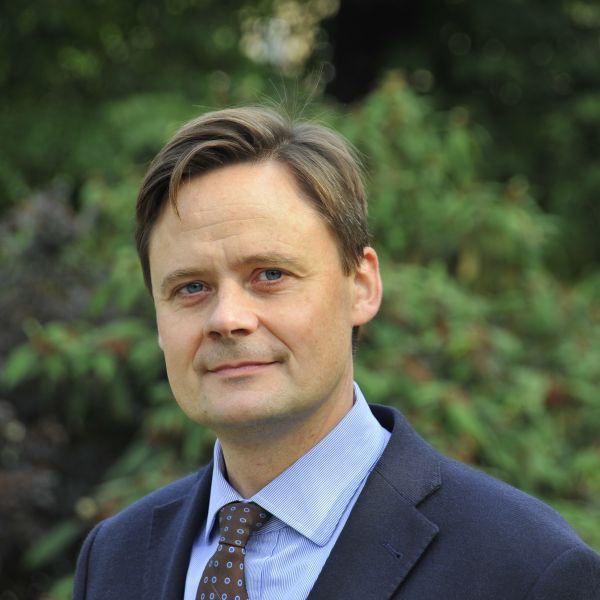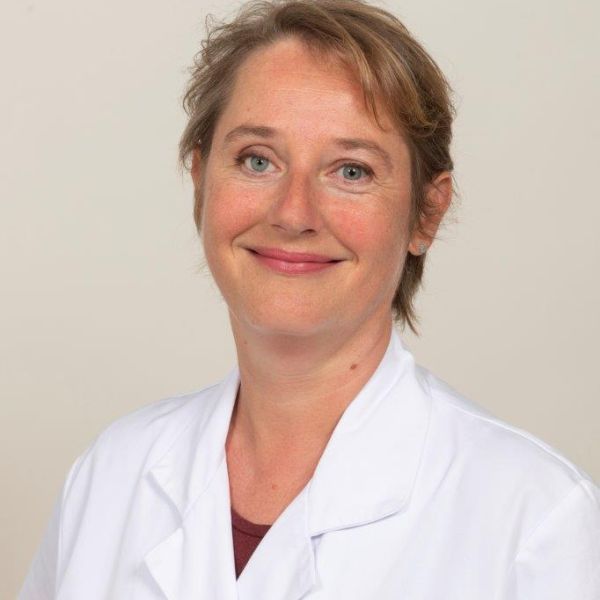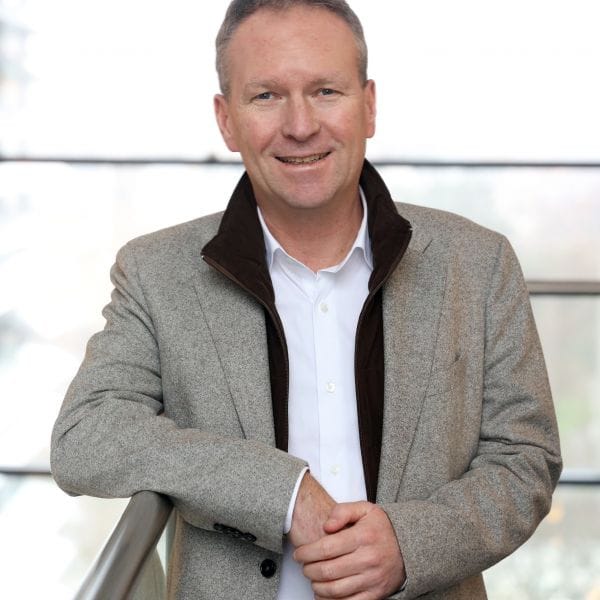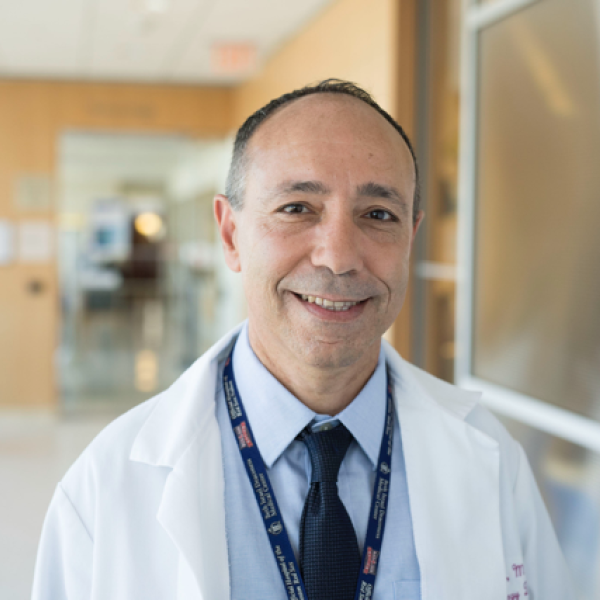About us
Bioxodes is a clinical-stage biotech company developing a range of therapeutics to tackle thrombo-inflammation at its source, starting with a potential breakthrough for stroke.
About us
Company overview
Bioxodes takes advantage of its deep understanding of the thrombo-inflammatory events to design novel product candidates.
Our lead asset, BIOX-101, offers breakthrough hope for patients suffering from intracerebral hemorrhage (ICH), an often deadly disease for which there is no approved cure. Accounting only for about 15% of all cases of stroke, ICH is the cause of 40% of all stroke-related deaths. Surviving patients often suffer severe disabilities, with fewer than 20% achieving full functional independence after six months.
Like other recently successful drugs, BIOX-101 has its origins in nature. It is a recombinant version of a small protein found in the saliva of the tick (Ixodes ricinus). Benefiting from millions of years of evolution, the protein enables the animal to attach itself to the body of its hosts for multiple days without detection (anti-inflammation) and to feed on blood (anticoagulation). BIOX-101’s powerful dual mode of action reflects these two functions
We are currently preparing a Phase 2b trial for BIOX-101, after very encouraging interim results in a Phase 2a trial. We have started the required CMC process to produce the required amount of BIOX-101 for the trial, and expect to start recruiting the first patients in the beginning of 2027.
BIOX-101 is also in development for ischemic stroke, and an undisclosed thrombo-inflammatory indication and will serve as an exploratory development program for other thrombo- and neuro-inflammatory indications.
Bioxodes is located in the Brussels South Charleroi Biopark, Belgium.
Our Team
Management
-
-
Philippe Monteyne is a Neurologist and holds a PhD in viral immunology from the Catholic University of Louvain and a postdoctoral degree in neuroimmunology from the Pasteur Institute in Paris.
Dr. Monteyne is Senior Advisor for Life Sciences at AltamarCAM Partners, which has investments of more than 20.8 billion euros in private markets, and a member of the Investment Committee, former partner of their life science fund Aliath Bioventures in Barcelona, and a previous senior partner of Fund+, a private equity fund in Belgium.
Philippe's career in the pharmaceutical industry includes senior roles at SmithKline Beecham, GSK, and Sanofi, where he led significant projects such as the development and launch of GSK's Cervical Cancer Vaccine, Cervarix, and innovative therapies like Strimvelis and Tegsedi for rare diseases. His leadership extends to serving on various biotech boards in Belgium, France, and Spain.
Philippe is also dedicated to academia, having been a visiting Professor of Neurology at the Université Catholique de Louvain, and continues to inspire future leaders as a part-time Professor and course coordinator of an Advanced Master in
Biotech & MedTech Ventures at Solvay Management School, Brussels. His commitment to advancing medical solutions is evident in his strategic roles and contributions to various health organizations.
-
Marc Dechamps is a biologist with more than 35 years of experience in the pharmaceutical industry, including at GSK and ViiVHealthcare. His extensive expertise in developing new products ranges from infectious diseases, immunological disorders, oncology and CNS disorders to vaccines. In 2016, Marc founded XMF consulting, a company which supports biotech and biopharma businesses with strategic advice and management leadership. He has served as managing director of Delphi Genetics, a CDMO, and interim CEO of eTheRNA Immunotherapies, an mRNA biotech firm. Next to his busy role as Bioxodes CEO, Marc serves as president of the board of Investsud Tech (group InvestSud) and as board member of HealthTech for Care (HT4C). He is a co-academic director for the advanced masters in biotech & medtech ventures at the Solvay Brussels School of Economics & Management, and recently joined Ose Immunotherapeutics as an independent board member.
-
Pierre Detrixhe is Managing Partner at Financière spin-off luxembourgeoise and Venture Director at Newton Biocapital. He brings more than 10 years of experience in the field of venture capital and has accompanied many companies in the start-up phase. Previously, he held positions of scientist and technology transfer officer in the biotechnology field. Pierre Detrixhe is Director at the Board of some promising Belgian start-up companies. He holds a Master in Bioengineering from the University of Liège (Gembloux Agro-Bio Tech), Belgium and a Master in Management from the Catholic University of Louvain, Belgium.
-
François Fontaine holds a law degree from the University of Brussels and he is a specialist in Tax affairs. He was counsel in various public institutions and cabinet. He is currently general counsel to the Federal Holding and Investment Company (SFPI)-FPIM. SFPI is focusing its investments on innovative Belgian Companies, hoping to contribute to their financial and societal success story. Mr. Fontaine is also a Board member of several companies including biotechs.
-
Dr Thérèse Croughs has over 30 years of experience in the Pharma and Biotech Industry, specializing in the provision of clinical development and regulatory strategy services to manufacturers and developers of biologics and biotech products. She brings a high level of medical expertise in the fields of hematology, immunology, infectious diseases and oncology, as well as experience of clinical development in biotechnology and regulatory affairs, having taken a number of early stage compounds from preclinical studies to the clinic. Dr Croughs started her career working in R&D for Bayer, NovoNordisk and BioAlliance Pharma, Paris, before joining Cytheris and then Neovacs as CMO. Whilst there, she was responsible for all R&D development activities, including Regulatory Affairs in EU, US as well as ROW. This included the registration of Kogenate® in EU, Loramyc® (miconazole Lauriad) in FR-EU and US/Japan, together with other applications using the same drug delivery technology. She was also responsible for the management of Medical Affairs and R&D and the development of a NCE pipeline (therapies developed to target drug resistance such as small molecules in infectious diseases, gene therapy in oncology).
-
-
-
Marc Dechamps is a biologist with more than 35 years of experience in the pharmaceutical industry, including at GSK and ViiVHealthcare. His extensive expertise in developing new products ranges from infectious diseases, immunological disorders, oncology and CNS disorders to vaccines. In 2016, Marc founded XMF consulting, a company which supports biotech and biopharma businesses with strategic advice and management leadership. He has served as managing director of Delphi Genetics, a CDMO, and interim CEO of eTheRNA Immunotherapies, an mRNA biotech firm. Next to his busy role as Bioxodes CEO, Marc serves as president of the board of Investsud Tech (group InvestSud) and as board member of HealthTech for Care (HT4C). He is a co-academic director for the advanced masters in biotech & medtech ventures at the Solvay Brussels School of Economics & Management, and recently joined Ose Immunotherapeutics as an independent board member.
-
Didier Le Normand is a seasoned professional with a 40-year international career, and he has been a part-time senior consultant since 2022.
Didier held executive positions in large international groups and private equity-backed industrial SMEs where he led operational turnarounds, supply-chain, financing and M&A transactions.
Over the past 15 years, Didier held CFO, COO and CEO roles in biotech and medtech ventures. His focus has been on providing strategic support and governance structure as well as conducting various fundraising and transactions.
Didier graduated (MBA) in both Paris and New York. His commitment to education is now reflected through his role as co-coordinator and lecturer for the Advanced Master in Biotech & Medtech Ventures program at the Solvay Lifelong Learning Brussels School. -
Dr. Hans Warrinnier joined Bioxodes following a leadership tenure at Roche Belgium where he held various senior leadership positions such as Medical Director. In this position, he led a team of 70+ across Clinical Operations, Medical Affairs and Medical Information, Drug Safety and Regulatory Affairs. He developed and supported affiliate and global clinical studies in different therapeutic areas, maintaining Belgium’s top spot in clinical trials per capita in the world. He delivered strategic expertise and advice for market access solutions in Belgium across different therapeutic areas, including oncology, hematology, neurology, immunology, and hemophilia. In addition to receiving his medical degree from the KU Leuven in Belgium, Dr. Warrinnier followed Business school programs from London Business School and Harvard Business School.
-
Sandrine Derochette obtained her PhD in Biochemistry and Cellular and Molecular Biology from the University of Liège in 2015 (study of the effect of curcumin on oxidative response of neutrophils). After her PhD, she joined Bioxodes as Study Coordinator in 2015. She is now Project Manager and Manager of the Quality Assurance team at Bioxodes.
-
Valérie Pireaux obtained her PhD in Biochemistry and Cellular and Molecular Biology (atherosclerosis specialization) from the University of Namur in 2017. After her PhD, she joined Bioxodes as Preclinical Scientist in 2017. She now holds the position of Preclinical Operations Manager & Clinical Data Reviewer.
-
Stéphanie Demoulin obtained her PhD in Biomedical and Pharmaceutical Sciences from the University of Liège in 2014, where she conducted an in-depth study on the role of dendritic cells in the progression of cervical cancer. Following her PhD, she pursued postdoctoral research focused on the development of therapeutic approaches for breast cancer at the University of Liège.
In 2016, Stéphanie transitioned to Bioxodes as a Scientific Writer, where she utilized her extensive research background to support the company's scientific communications. Her expertise led to her current role, where she now leads the medical writing activities for Bioxodes. In this role, she is responsible for writing key scientific documents, regulatory submissions and publications that report on the company's research and development achievements.
In addition to her role in medical writing, Stéphanie also manages Bioxodes' Intellectual Property (IP) portfolio. This involves overseeing the identification, protection, and strategic management of the company's IP assets, ensuring that Bioxodes' innovations are safeguarded and leveraged to maximize their commercial potential. -
Charlotte obtained her Master in Pharmaceutical Sciences in 2014. Having started her career in pharmacies, she quickly reoriented herself in the field of clinical studies. She began her career in the field of Clinical Research Organization (Medpace) where she developed the qualities needed for the successful development of a Clinical Project Manager. She worked there for 2.5 years, before starting to work as a Clinical Project Manager for a large pharmaceutical company for 3 years (Bristol Myers Squibb). She joined Bioxodes in 2021 and now holds the position of Clinical Operations Lead.
-
Cindy Hespel obtained her PhD in Immunology from the University of Brussels (ULB) in 2012 (Regulation of Adaptive Immune Responses by Conventional and Inflammatory Dendritic Cells). After her PhD, she began her career as Project Execution Manager (Global Medical Affairs Operations) at GlaxoSmithKline Vaccines for 2 years. She then moved to Bristol Myers Squibb as Clinical Trial-Global Submission Manager managing large portfolio across diverse Therapeutic Areas for 7 years before joining Bioxodes as Regulatory Affairs Manager in 2021.
-
About us
Advisory Board
-
-
Robin Lemmens, M.D.
01.Leuven, BelgiumRobin Lemmens is a neurologist with specific certification in rehabilitation and the head of the stroke unit at the University Hospitals Leuven (Belgium). His main research interests are imaging of acute stroke focusing on the role of MRI and CT perfusion for prediction of outcome including artificial intelligence and stroke recovery. He is a fellow and member of Board of Directors of the European Stroke Organization, previous chair of ESOTA (European Stroke Organisation Trials Alliance) and vice-chair of the Belgian Stroke Council.
-
Rustam Al-Shahi Salman, MA MB BChir PhD FRCP Edin FHEA FESO
02.Edinburgh, United KingdomProf. Salman leads the Research to Understand Stroke due to Haemorrhage (RUSH) programme, which is dedicated to improving the outcome for adults who have diseases that may cause, or have caused, intracranial hemorrhage. He became interested in neurology during undergraduate medical training at Cambridge University. He was inspired to work on common neurological problems by Charles Warlow and the stroke research group in Edinburgh, which he joined in 1998 as an MRC clinical training fellow, progressing to MRC patient-oriented clinician scientist and senior clinical fellowships until 2016. Some of the fundamental study designs of observational clinical epidemiology have underpinned his initial focus on the frequency, prognosis, and pathophysiology of intracranial haemorrhage. Since becoming a professor of clinical neurology at the University of Edinburgh in August 2013, his research has increasingly focussed on methodologically rigorous randomised controlled trials of interventions to prevent and treat stroke due to intracranial haemorrhage. As an honorary consultant neurologist since 2006, he cares for people with neurological conditions including stroke in-hours and out-of-hours, he audits their care, and he helps undergraduate and postgraduate students to develop and address clinical uncertainties within the RUSH programme.
-
Matthias Endres, M.D.
03.Berlin, GermanyMatthias Endres is Professor and Chair of Neurology at the Charité Hospital in Berlin. He is also on the Board of Directors of the Center for Stroke Research Berlin. His major research interests are preventive vascular mechanisms, mechanisms of cell death, regeneration and functional outcome, heart-brain interaction, post-stroke depression, and telemedicine. Matthias Endres is author of more than 500 research articles, reviews, and editorials. He is a member of the German National Academy of Sciences Leopoldina and Visiting Professor at the University of Oxford, U.K.
-
David Seiffge, M.D.
04.Bern, SwitzerlandDavid Seiffge is vice-head of the stroke center and head of the Neuro Clinical Trial Unit at the University Hospital in Bern and associated Professor of Clincal Neurology at the University of Bern, Switzerland. His main research interest are ischaemic stroke, oral anticoagulants and intracerebral haemorrhage. He is involved in several randomized controlled trials studying the treatment of intracerebral haemorrhage.
-
Charlotte Cordonnier, M.D.
05.Lille, France -
Denis Vivien, Ph.D
06.Caen, FranceDr. Vivien is Professor and hospital practitioner in Cell Biology, head of the Inserm unit UMR-S U1237 (“physiopathology and Imaging of Neurological Disorders”, PhIND), Scientific director of the Institute Blood and Brain @ Caen-Normandie (BB@C, Inserm, Unicaen, CHU Caen), responsible of the research axis Heart and Brain at the Caen Hospital and of the center for biological resources of the department for clinical research of Caen University Hospital. His lab is a leading group in the field of experimental stroke and on the coordination of clinical trials. Dr. Vivien is also Scientific Advisor for the CRO Strok@lliance through which he offers his laboratory’s expertise and know-how to the pharmaceutical industry, in a bid to accelerate innovative drug development from bench-to-bedside.
-
Cedric Hermans, M.D, Ph.D, FRCP (Lon, Edin)
07.Brussels, BelgiumProf. Hermans currently heads the Division of Haematology, the Hemostasis and Thrombosis Unit as well as the Hemophilia Center of the Saint-Luc University Hospital in Brussels, Belgium. He was appointed Associate Professor at the Medical School of the Catholic University of Louvain in 2003, Full Professor in 2012 and Vice-Dean in 2015. Prof. Hermans has (co)-authored more than 275 original articles in international journals and is a member of several scientific societies and international advisory boards and collaborative research projects. He was president of EAHAD and is currently member of the Board of Directors of the World Federation of Haemophilia and the Editor-in-Chief of the Haemophilia Journal. His main research interests lie in the area of haemostasis and thrombosis, especially clinical studies on the treatment modalities and the wide spectrum of complications of haemophilia in both developed and developing countries, as well as new anticoagulants and the management of thrombosis.
-
-
-
Ashkan Shoamanesh, M.D.
08.Hamilton, CanadaDr. Shoamanesh is an Associate Professor of Medicine (Div. of Neurology) at McMaster University, Canada where he holds the Marta and Owen Boris Chair in Stroke Research and Care, and the Director of the Hemorrhagic Stroke Research Program and a Scientist at the affiliated Population Health Research Institute. His research program aims to develop new treatments and standards of care that improve patient outcomes through the design and efficient execution of acute stroke and secondary stroke prevention randomized trials.
-
Magdy Selim, M.D., PhD.
09.Boston, United-StatesMagdy Selim, is Professor of Neurology at Harvard Medical School. He serves as the Chief of the Division of Stroke and Cerebrovascular Disease and the Director of the Comprehensive Stroke Center at Beth Israel Deaconess Medical Center (BIDMC) in Boston. Dr. Selim graduated from the University of Alexandria - Faculty of Medicine in Egypt. He completed his residency training at the University of Massachusetts Medical Center and fellowship training at BIDMC.
Dr. Selim maintains extensive academic, educational, clinical and research activities across a broad range of neurological- and stroke-related topics. He is a fellow of the American Neurological Association, the American Heart Association/ American Stroke Association Stroke Council, and the European Stroke Organization. He is also a member of the FDA Neurological Devices Advisory Panel since 2018. Dr. Selim has been one of Castle Connolly, Inc. America’s and Boston’s Top Doctors since 2007. He has published more than 300 original papers, books, and book chapters.
Dr. Selim has received funding from the NINDS, NIA and AHA, and has led several NIH-funded, multi-center, international clinical trials. Dr. Selim is particularly known for his interest and research in intracerebral hemorrhage. He is the founder of the HEmorrhagic stroke Academia inDuStry (HEADS) roundtable; a think tank group comprised of leading researchers and physicians in the field, industry representatives, and decision-makers from regulatory agencies such as NINDS and FDA, aiming to improve ICH research and develop a roadmap to expedite the development of new therapies. He also played a key role in the establishment of the World Intracranial Hemorrhage (WICH) Organization.
-




















